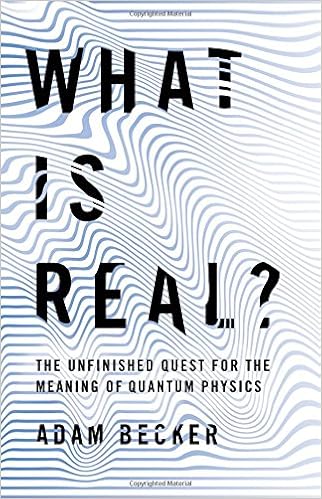 From science historian James Gleick at the New York Times, reviewing astrophysicist Adam Becker’s What Is Real?:
From science historian James Gleick at the New York Times, reviewing astrophysicist Adam Becker’s What Is Real?:
So quantum physics — quite unlike any other realm of science — has acquired its own metaphysics, a shadow discipline tagging along like the tail of a comet. You can think of it as an “ideological superstructure” (Heisenberg’s phrase). This field is called quantum foundations, which is inadvertently ironic, because the point is that precisely where you would expect foundations you instead find quicksand.
…
The Unfinished Quest for the Meaning of Quantum Physics When scientists search for meaning in quantum physics, they may be straying into a no-man’s-land between philosophy and religion. But they can’t help themselves. They’re only human. “If you were to watch me by day, you would see me sitting at my desk solving Schrödinger’s equation…exactly like my colleagues,” says Sir Anthony Leggett, a Nobel Prize winner and pioneer in superfluidity. “But occasionally at night, when the full moon is bright, I do what in the physics community is the intellectual equivalent of turning into a werewolf: I question whether quantum mechanics is the complete and ultimate truth about the physical universe.”
More.
Well, when we hear people grousing that the public doesn’t “believe in” science, it might be helpful to ask, “What, specifically, should we ‘believe in’ that we can be reasonably sure is science? So many of the controversies revolve around dogmatic metaphysics claiming to be science.
See also: Laszlo Bencze on the current campaign against Karl Popper’s falsification criterion for science (Adam Becker)
and
Does a “fetish for falsification and observation” hold back science? (Adam Becker)